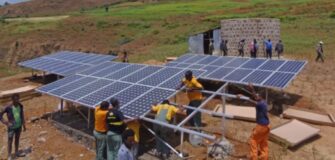Share
In late 2024, the Ivory Coast, recognized as the world’s foremost cocoa producer, proudly reported record-breaking export levels. This extraordinary growth in cocoa exports is fueled by a remarkable surge in global demand despite facing persistent international supply challenges.
This achievement not only showcases the critical role of the Ivory Coast’s cocoa sector in sustaining the global chocolate market but also emphasizes its indispensable contribution to the economies dependent on it.
Sector Challenges that Must Be Addressed:
However, beneath these impressive figures lies a pressing reality for cocoa farmers in the Ivory Coast, who grapple with numerous challenges threatening the long-term viability of cocoa production. A significant issue is the rising number of aging cocoa trees, which produce lower yields and are more vulnerable to diseases that can devastate crops.
Furthermore, the agricultural landscape is increasingly impacted by climate change, with erratic weather patterns, heavy rainfall, and extended droughts posing substantial risks to cocoa farming. To confront these obstacles and ensure sustained production levels, it is crucial to modernize farming techniques. This involves investing in environmentally sustainable practices to combat the urgent issue of deforestation rampant in the region.
The Critical Need for Sustainable Production:
Ensuring the sustainability of cocoa exports from the Ivory Coast is vital for its local economy and the intricate global supply chains that rely heavily on this precious commodity. The country’s capacity to consistently produce and export cocoa is essential for satisfying the burgeoning global appetite for chocolate products.
As chocolate consumption continues to rise, prioritizing a stable, reliable supply of cocoa through improved agricultural practices and adaptation to climate challenges is pivotal for the industry’s future. Proactive measures taken today to address these significant challenges will have far-reaching implications for local farmers and the extensive global market for cocoa products.
Image Source:reuters.com


